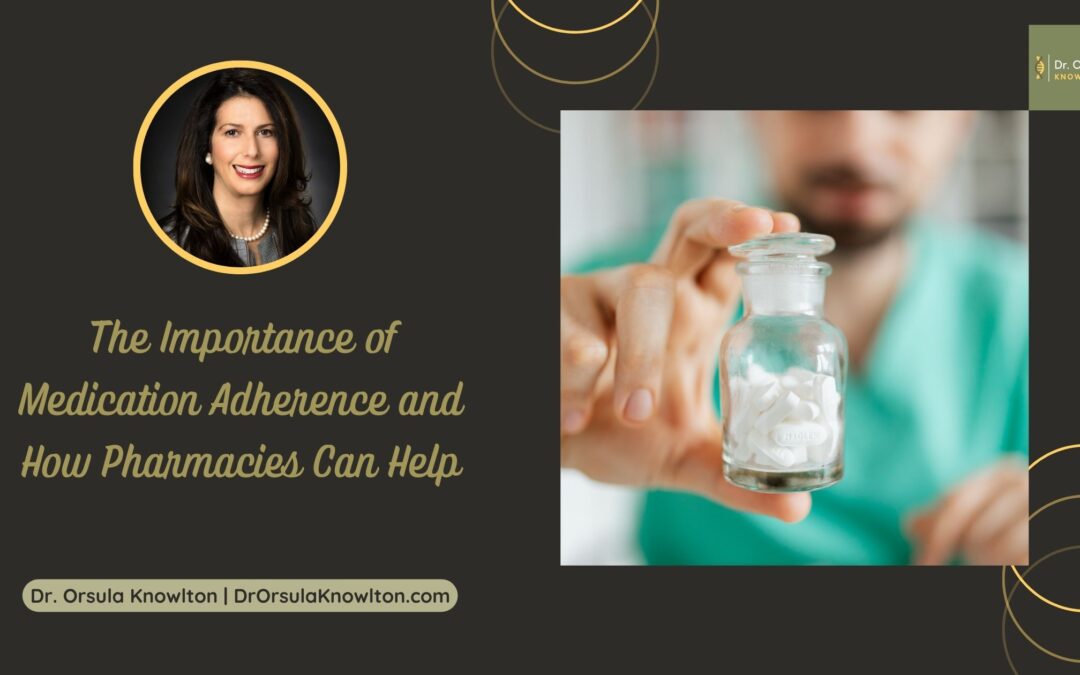Medications play a vital role in managing and treating various health conditions. However, the effectiveness of medications relies heavily on patient adherence to prescribed regimens. Medication non-adherence can lead to poor health outcomes, increased healthcare costs, and a significant burden on individuals and the healthcare system as a whole.
The Significance of Medication Adherence
Medication adherence refers to the extent to which patients take medications as prescribed by their healthcare providers. It involves following the prescribed dosage, frequency, and duration of treatment. Medication adherence is essential for several reasons:
1. Improved Health Outcomes:
Adhering to medication regimens significantly improves health outcomes and disease management. It ensures that the medication reaches the intended therapeutic levels in the body, effectively controlling symptoms, managing chronic conditions, and preventing disease progression.
2. Reduced Hospitalizations and Complications:
Proper medication adherence can prevent avoidable hospitalizations, emergency room visits, and complications related to untreated or uncontrolled conditions. It helps maintain stability and control of chronic conditions, reducing the risk of acute exacerbations.
3. Cost Savings:
Non-adherence to medications is associated with increased healthcare costs. By adhering to prescribed regimens, patients can potentially avoid additional medical expenses, such as hospitalizations, emergency care, and complications arising from poorly managed conditions.
4. Enhanced Quality of Life:
Adhering to medications can improve patients’ quality of life by reducing symptoms, preventing relapses, and enabling individuals to actively engage in their daily activities, work, and social life.
The Role of Pharmacies in Promoting Medication Adherence
Pharmacies play a crucial role in supporting medication adherence through various services and interventions. Here’s how pharmacies can help:
1. Medication Counseling:
Pharmacists are medication experts who can provide personalized counseling and education to patients about their prescribed medications. They can explain the importance of adherence, potential side effects, and how to take medications properly. By addressing patients’ concerns and providing clear instructions, pharmacists empower patients to take control of their health.
2. Medication Synchronization:
Many patients are prescribed multiple medications with different refill schedules. Medication synchronization programs offered by pharmacies help align prescription refills so that patients can conveniently pick up all their medications on a single visit. This reduces the chances of missed doses and improves adherence.
3. Medication Packaging Solutions:
Pharmacies offer various packaging solutions, such as blister packs or medication organizers, which simplify medication management for patients. These packaging solutions provide labeled compartments for each dose, making it easier for patients to remember and take their medications correctly.
4. Refill Reminders and Auto-Refill Programs:
Pharmacies can send automated reminders to patients when it’s time to refill their prescriptions. Auto-refill programs can be set up to ensure that patients have a continuous supply of their medications, reducing the risk of running out and interrupting adherence.
5. Medication Adherence Monitoring:
Pharmacies can utilize medication adherence monitoring systems to track and assess patients’ adherence patterns. By identifying potential adherence issues, pharmacists can intervene and provide additional support, including counseling or collaborating with healthcare providers to adjust treatment plans if necessary.
6. Collaboration with Healthcare Providers:
Pharmacies can collaborate with healthcare providers to facilitate communication and coordination regarding patients’ medication therapies. This collaboration ensures that medication regimens are optimized and any potential barriers to adherence are addressed promptly.
7. Patient Education and Support Programs:
Pharmacies can organize educational workshops, support groups, or one-on-one counseling sessions to help patients understand the importance of adherence and address any challenges they may face. Providing educational materials, such as brochures or handouts, can further reinforce the importance of medication adherence.
Conclusion
Medication adherence is critical for achieving optimal health outcomes and preventing avoidable complications. Pharmacies play a pivotal role in supporting patients to adhere to their medication regimens through counseling, medication synchronization, packaging solutions, reminders, monitoring systems, and collaboration with healthcare providers. By providing comprehensive support and education, pharmacies empower patients to take control of their health and improve medication adherence, leading to better health outcomes, reduced healthcare costs, and enhanced quality of life.

